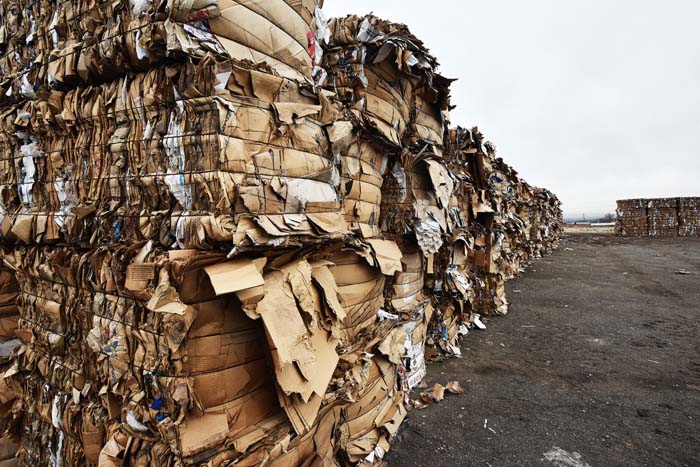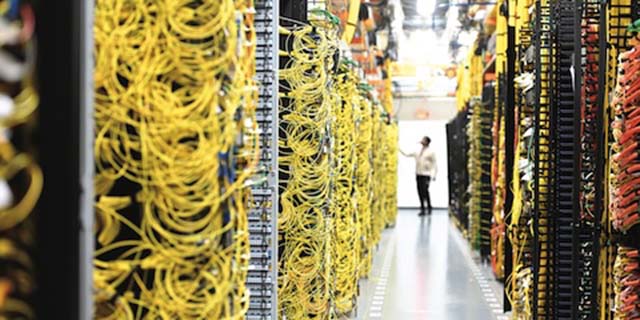Recycling unrest
Published 2:10 pm Tuesday, December 5, 2017

- Stacks of baled cardboard sit ready to be shipped out at Sanitary Disposal Inc. on Thursday in Hermiston.
A chain reaction caused by Americans’ sloppy recycling habits has thrown the recycling market into disarray, and companies are encouraging everyone to think twice about what they’re tossing into collection bins.
“A little contamination turns a recyclable into waste,” said Bill Kik, maintenance supervisor at Sanitary Disposal outside Hermiston.
Much of the western United States’ paper and plastic has been shipped to China for recycling in the past. But in July China announced it would cease importing 24 types of solid waste, including several categories of paper and plastic, by the end of the year and require a less than 0.5 percent contamination rate for the rest. Chinese officials complained U.S. companies were sending loads that were up to 20 percent contaminants, ranging from food and Styrofoam to more hazardous waste like used syringes.
Many Chinese recyclers have already stopped taking shipments, leaving U.S. waste collectors scrambling. The Department of Environmental Quality has issued “disposal concurrances” to 12 transfer stations so far allowing them to send recycling to the landfill because they have no more room to store it.
Sanitary Disposal is in a better position. Most of the recyclable materials it takes in — including newspaper, glass, wood, cardboard, electronics, tin and aluminum — are sent to domestic buyers, and the company has enough room to store bales of plastic for the foreseeable future. But Sanitary Disposal President Mike Jewett said other transfer stations that were previously sending materials to China are now trying to find a domestic home for them, causing a glut in the market that Jewett hopes to ride out for a while.
“We’re stockpiling more,” he said.
Recyclables are the sixth largest export from the United States to China, according to the Oregon Refuse and Recycling Association. As the market fluctuates, careless or intentional dumping of non-recyclable materials into drop-off sites like the one Sanitary Disposal has on Harper Road in Hermiston can cause a thin profit margin to turn into a loss.
“Recycling is expensive enough as it is to collect, and then if we have to toss it, that’s really expensive, and that reflects on everyone’s (garbage collection) rates,” Jewett said.
Not following the rules on recycling can have a larger impact than most people realize. Signs at the collection depots state that window glass and light bulbs should not be dumped into the containers for clear glass, for example, but people do it anyway. If the window breaks before a Sanitary Disposal employee spots it and pulls it out, the entire load of glass has to be dumped in a landfill rather than risk the lead-tainted window glass being recycled into a food or beverage container.
“Suddenly you’ve got 30 tons of glass that are useless,” Kik said.
They also get a lot of clear plastic mixed in with the glass, and people tend to not be able to tell the difference between tin and aluminum (hint: if it sticks to a magnet, it’s tin; if not, it’s aluminum) or don’t bother to rinse the food out of the containers or pull the paper labels off.
Kik said another one he sees frequently is people throwing Styrofoam pieces and packing peanuts into the cardboard dumpster.
“The Styrofoam just kills the load,” he said. “A lot of places will just bale it up with all of that in there. We pull it out, but a lot of people don’t and I guess that’s what caused the problem with China.”
Staff time spent removing packing peanuts from a load of cardboard or hauling lead-contaminated glass to a landfill instead of selling it adds up. Jewett and Kik said the more people can follow the rules posted on signs at the depots, the better.





